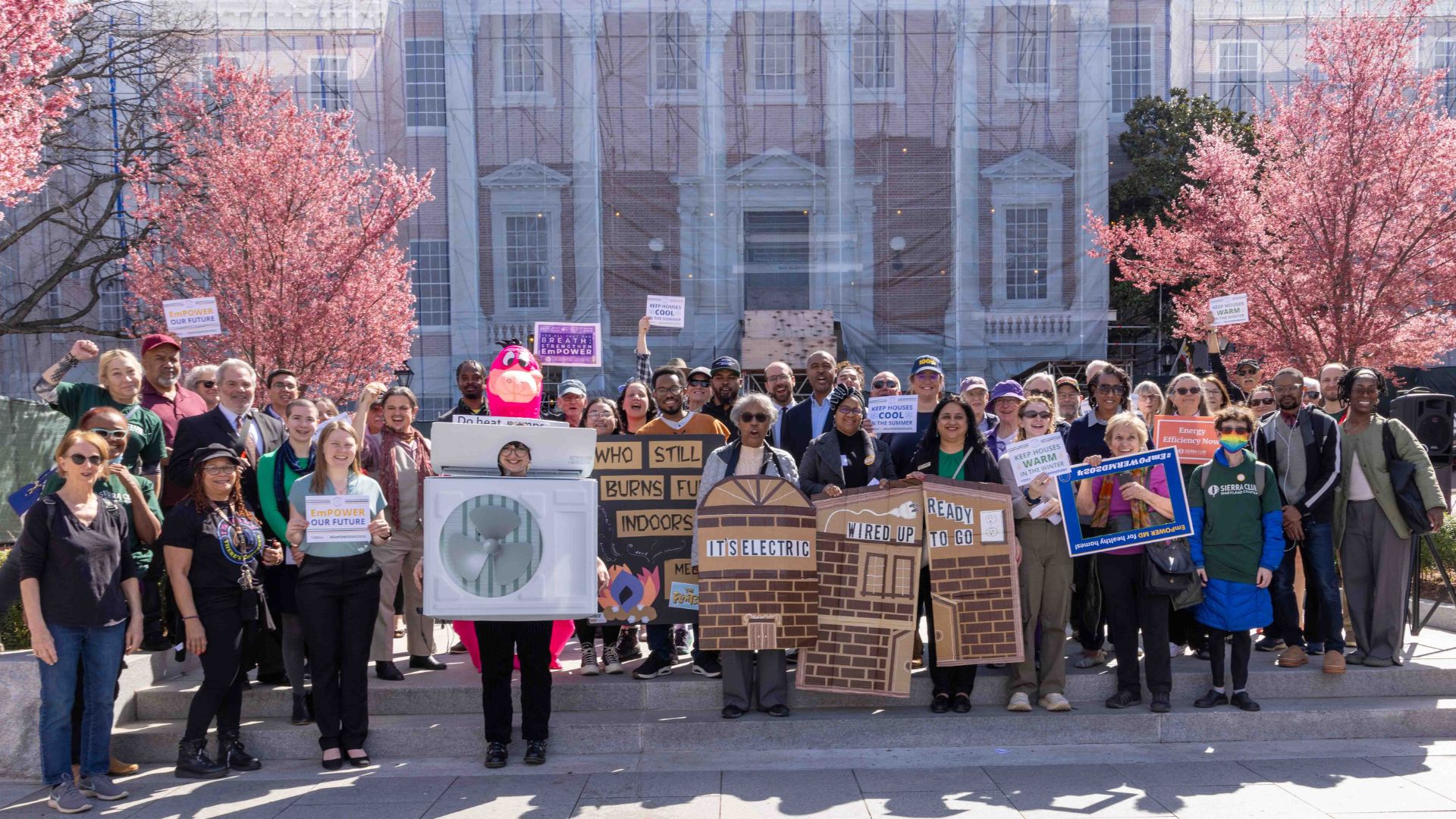
Celebrating National Public Health Week, Clean Air, and a Healthy Climate
Legislators just passed a bill that would help power our buildings and transportation with renewable energy, replacing fossil fuel technologies with clean, electric alternatives.

Maryland’s reliance on polluting fuels puts our health and safety at risk. And if we don’t act fast, energy customers will be trapped with the financial burden of ever-increasing costs for outdated gas infrastructure.
Legislators just passed a bill that would help power our buildings and transportation with renewable energy, replacing fossil fuel technologies with clean, electric alternatives.
Gov. Hogan will decide this week if he will veto the bill, and if he does, the legislature will have to vote again to override the veto during the current legislative session.
The Climate Solution Now Act (SB528) will reduce pollution from transportation and buildings, protecting public health and the planet.

Topics
Authors
Emily Scarr
State Director, Maryland PIRG; Director, Stop Toxic PFAS Campaign, PIRG
Emily directs strategy, organizational development, research, communications and legislative advocacy for Maryland PIRG. Emily has helped win small donor public financing in Baltimore City, Baltimore County, Howard County, Montgomery County, and Prince George's County. She has played a key role in establishing new state laws to to protect public health by restricting the use of antibiotics on Maryland farms, require testing for lead in school drinking water and restrict the use of toxic flame retardant and PFAS chemicals. Emily also serves on the Executive Committees of the Maryland Fair Elections Coalition and the Maryland Campaign to Keep Antibiotics Working. Emily lives in Baltimore City with her husband, kids, and dog.
Find Out More

2024 Maryland Legislative Session: Wins and Losses

Electric and gas utilities spend millions on political influence in Maryland

The EmPOWER Maryland Energy Efficiency Act needs an update

